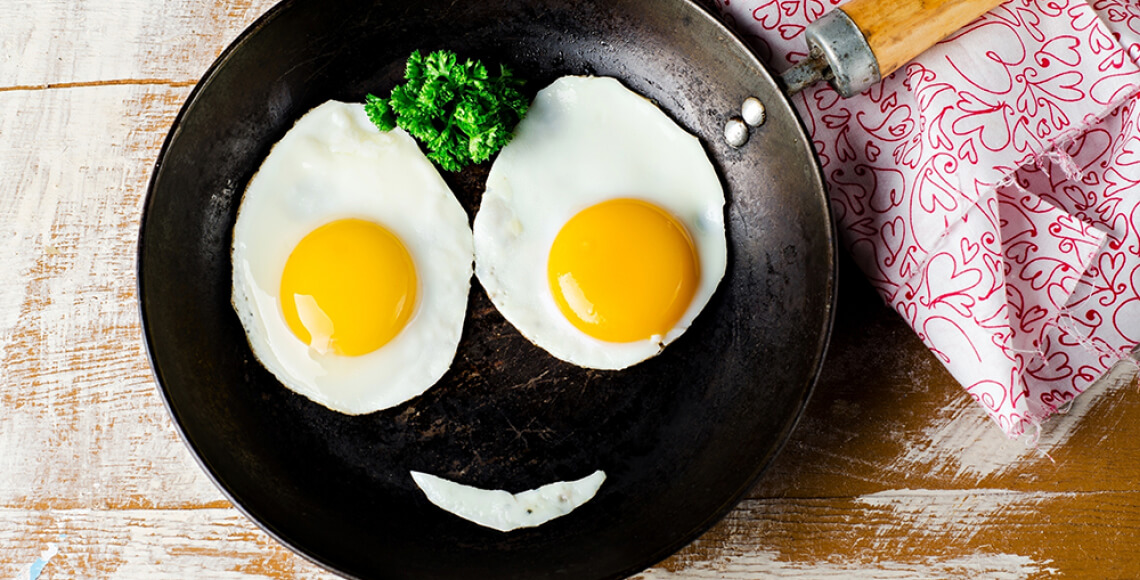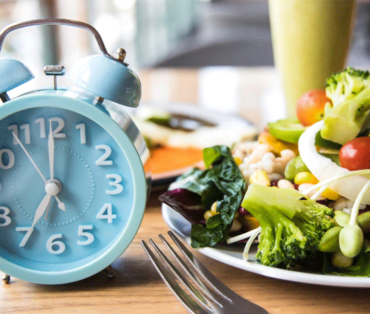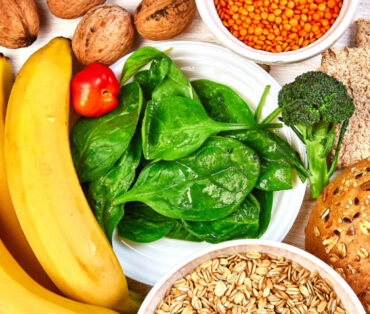How Does Your Diet Affect Your Mood?
As you may have discovered over the past year in quarantine, your mood can affect your diet. Stress and boredom can leave you craving foods that are less than ideal when it comes to a healthy eating plan. You may be surprised to learn that the reverse is also true; the foods you choose to eat can affect your mood.
No matter what its source of fuel, your brain never stops. Twenty-four hours a day, seven days a week, it works to regulate your breathing, heart rate, and senses, not to mention your mental state. So, it should come as no shock that the foods you put in your body can affect how your brain functions, particularly when it comes to mood. The life or death physiological processes are non-negotiables, so when the brain is undernourished, some of the first things it will slack on is your emotional state. 1
Looking a little deeper, the relationship between diet and mood goes like this: When you follow a healthy eating plan and get the vitamins, minerals, and antioxidants your body needs, those nutrients help protect your brain from oxidative stress. When you start slacking and eat foods high in sugar, salt, and fat and low in vitamins and minerals, your brain fails to function as it should. Research has shown a link between diets high in processed foods, sugar, and fat and mood disorders like anxiety and depression. 2
The jury isn’t out on whether food affects mood directly, but some foods have been shown to improve the overall health of your brain.
Be it indirectly, there are some clear ways food affects mood.
For one, depressed individuals tend to reach for sugar-laden and processed foods. This may lead to a vicious cycle, where mood causes a person to reach for the wrong foods, and then those foods affect mood negatively, you eat more unhealthy food, and so on. 3
People may try to intentionally boost mood with food—called emotional eating. When you use food as an escape from your mood or you engage in stress eating, you’re in emotional eating territory, which is a slippery slope. Instead, try to be more mindful when it comes to eating. Savor the taste of healthy food and think consciously about the good it’s doing for your body, and you will create the power to boost mood with food. In a review published in Obesity Reviews, researchers found that 86 percent of studies pointed to less binge and emotional eating when mindful eating was put into place. 4
Here are some of Curves favorite foods to boost your mood and energy, so you can get the most from your full body workout when you hit the circuit:
Mood boosting food: Salmon.
Or another fatty fish, such as albacore tuna or sardines. These swimmers are full of omega-3 fatty acids, which support brain health. Recent research shows omega-3 fatty acids may lower levels of depression. 5 Aim for a few servings of salmon or other fatty fish per week. 6
Mood boosting food: Berries.
Not only will berries help shrink your waistline and support your healthy eating plan, they are a great food for mood. Berries are rich in compounds called anthocyanins, which give berries their purple color and may lower risk of depression. 7
Mood boosting food: Dark chocolate.
High on the list of foods that improve mood is dark chocolate. Not only does dark chocolate taste good, which makes your brain happy, it’s also rich in several compounds that may boost mood, including caffeine and N-acylethanolamine—a substance similar to cannabinoids.8 Dark chocolate also contains flavonoids, which boost brain health by increasing blood flow and reducing inflammation.9 Milk chocolate tends to be higher in sugar and fat and lower in the compounds that make chocolate a good food for your mood, so opt for dark varieties. 10
Mood boosting food: Fermented foods.
Scientists are learning that a close second to your brain when it comes to mood regulation is your gut. In fact, 90 percent of the hormone serotonin is produced in the healthy bacteria in your gut, called your microbiome. Serotonin is a neurotransmitter involved in appetite, sex drive, stress response, and you guessed it—mood.11 Some research shows a link between a healthy gut microbiome and lower rates of depression.12 Fermented foods help support a good ratio of good to bad bacteria in the microbiome, so they are foods that boost mood. Fermented foods include kombucha, yogurt, kefir, kimchi, and sauerkraut. 13
Mood boosting food: Bananas.
You’d be hard pressed to find a person who doesn’t like bananas. They are soft, sweet, and naturally individually wrapped. A bonus: Beyond their convenience and appeal (haha), bananas are also a great food for your mood. For one, bananas are rich in vitamin B6, which helps the brain make the feel-good neurotransmitters dopamine and serotonin.14 Bananas also help regulate blood sugar, and stable blood sugar is another key element when it comes to diet and mood.15
To support an exercise and weight loss eating plan, healthy eating habits are important. There are both good and bad foods for your mood. Healthful mood boosting foods can benefit both your body and brain, and they will give you the energy you need to get through your Curves full body workout with stamina to spare.
Sources:
- Harvard Health Publishing: Nutritional psychiatry: Your brain on food
- Harvard Health Publishing: Nutritional psychiatry: Your brain on food
- Plos One: Dietary Patterns and Depressive Symptoms over Time: Examining the Relationships with Socioeconomic Position, Health Behaviours and Cardiovascular Risk
- National Library of Medicine: Mindfulness-based interventions for obesity-related eating behaviours: a literature review
- National Library of Medicine: Fish consumption and risk of depression: Epidemiological evidence from prospective studies
- U.S. Department of Agricultural: Fish, salmon, Atlantic, farmed, cooked, dry heat
- National Library of Medicine: Dietary Polyphenol Intake and Depression: Results from the Mediterranean Healthy Eating, Lifestyle and Aging (MEAL) Study
- National Library of Medicine: Effects of chocolate on cognitive function and mood: a systematic review
- National Library of Medicine: Mood Components in Cocoa and Chocolate: The Mood Pyramid
- Healthline: 9 Healthy Foods That Lift Your Mood
- Healthline: Serotonin: What You Need to Know
- National Library of Medicine: A gut (microbiome) feeling about the brain
- Healthline: 9 Healthy Foods That Lift Your Mood
- National Library of Medicine: B6-responsive disorders: a model of vitamin dependency
- U.S. National Library of Medicine: Practical Approaches to Diagnosing, Treating and Preventing Hypoglycemia in Diabetes








